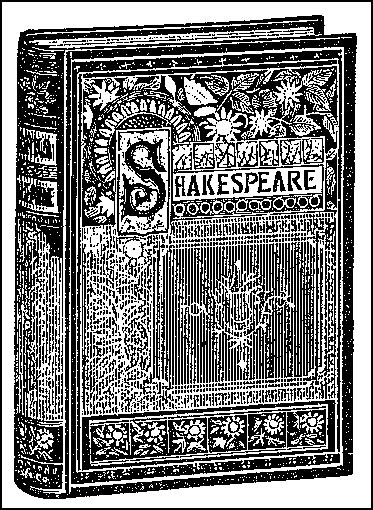Language
Frank Kermode
(Farrar Straus)
 Pity the poor English Major. He gets to immerse himself in the works of such drones as Milton, Dryden, and Pope. A weekend read is Clarissa, Wuthering Heights, or Ulysses. In some graduate programs he will have to read German or French, he'll have to write a PhD thesis on the likes of Gammer Gurtin's Needle, The Adventures of a Gentleman, or the Northumberland ballads out of The Hermit of Warkworth.
Pity the poor English Major. He gets to immerse himself in the works of such drones as Milton, Dryden, and Pope. A weekend read is Clarissa, Wuthering Heights, or Ulysses. In some graduate programs he will have to read German or French, he'll have to write a PhD thesis on the likes of Gammer Gurtin's Needle, The Adventures of a Gentleman, or the Northumberland ballads out of The Hermit of Warkworth.He is expected not only to understand Middle English, but to be able to read it. He has to wade through the Romantics, the pre-Raphaelites, the Edwardians, the pre-moderns, post-moderns, middle-moderns, anti-moderns, and the quasi-moderns. He will be required to answer questions by tired, tenured professors on such fascinating writers as William Congreave, John Mabbe, and Robert Surtees. He will be expected to differentiate between a sonnet, a trimeter, a tribrach, a rondel (and even a rondeau).
Most of all, he will be expected to be fully familiar with the twenty-three --- or is it twenty-eight? or perhaps thirty-six? --- plays of Shakespeare.
Shakespeare. Saints preserve us! For Shakespeare is best for punishing students; he's the wheel on which many a poor graduate student will be broken --- this word-monger from four centuries past, writing in a language that can scarcely be comprehended, in a style that is occlusive at best, on a variety of unpleasant scoundrels (Lady Macbeth. Iago. Richard III.) And all the while our wretched student will be forced to add to the garbage pile of M.A. or Ph.D. theses, to be ignored by all as soon as completed.
Indeed, after plowing through and writing yet another paper on Romeo and Juliet, or Henry IV, Part 1, or the mumblings of the dark Prince of Denmark, for the seventh time --- he will begin to wonder if it would not be wiser to study mechanical engineering, fixed partial dentures, Serbo-Croation geology, black holes --- anything to get away from the dread Bard of Stratford.
There are a few --- a very few --- characters that one could want to know: Mercutio, the Fool, even the drunken porter. And most certainly, lovely Cleopatra, telling us about,
My salad days,
When I was green in judgment, cold in blood...
Or telling the maids, if they see Anthony,
If you find him sad,
Say I am dancing; if in mirth, report
That I am sudden sick...
Or, as she is about to commit herself to the gods, asp against her bosom,
Peace! Peace!
Dost thou not see my baby at my breast,
That sucks the nurse asleep?
Outside of the likes of her, as far as we anti-Bards are concerned, you can take the entire First Folio and dump it in the Thames --- and thus spare future students the wheezing papers they are required to do on "Courtly Lovers in Shakespeare," or, "Justice in Measure for Measure," or "Concepts of Ageing in The Tempest."
There is perhaps one other redeeming aspect to the study of Shakespeare. It flows from those literate (and often poetic) scholars who write on some aspect of the plays and, in the process, create a work of art: the art of high criticism. Those who come readily to mind are A. C. Bradley on Shakespeare's tragedies, William Empson on ambiguity, and Harry Levin's wonderful Question of Hamlet.
They are joined now by the wise and learned Frank Kermode --- treating Shakespeare's poetry in a very poetic fashion. Rather than spend an evening at the Old Globe wrestling with the obscure pyrotechnics of King Lear, we'd suggest a quiet evening in the sack with a bottle of sack, paging through Kermode's fascinating volume, seeing the master through the eyes of another master.
For example, let's look at a short passage in Measure for Measure in which Claudio, "under sentence of death for fornication, agrees that his sister, the novice Isabella, might, with some hope of success, go to the deputy Angelo and plead for her brother's life,"
for in her youth,
There is a prone and speechlesse dialect
Such as moue men...
Kermode then goes on to comment on the word "prone:"
A modern reader may...agree that this passage, far from suffering a loss of sense from that "distortion of words" which " is not uncommon in our author," comes from the secret places of the Muse where distortions make poetry; that it is a wonderful piece of language, one of those that provoke the sort of attention T. S. Eliot had in mind when he spoke of the bewildering minute, the moment of dazzled recognition, from which one draws back and, having regained composure, tries to think of something to say about an experience too disconcerting to be thought of as simply pleasant.
For, he goes on, it would not be untoward for those reading this passage to begin to have an inkling that Claudio, on death row, thinks that his sister, the virginal nun, should be "moving men" --- moving them, that is, for pleasure. Indeed, "this last half-line," says Kermode,
makes its point very calmly, with an air of knowing about such cases; and, indeed, I feel very indelicate in explaining Claudio's meaning.